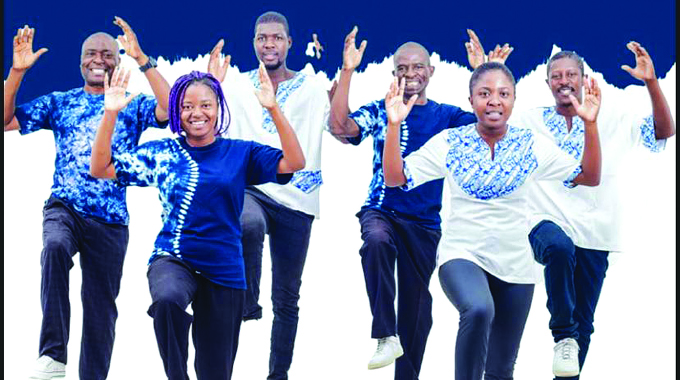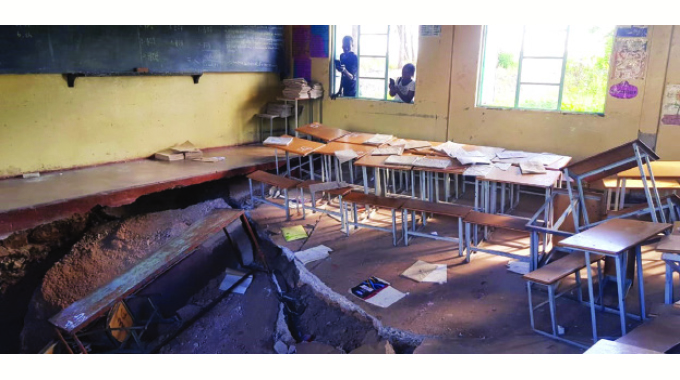Surprise at AfDB meetings . . . as Black Umfolosi track played

Africa Moyo recently in SHARM EL-SHEIKH, Egypt
When one is far away from their country, hearing someone speaking the same language as theirs tends to comfort them, and provides a false sense of security that “at least I am not walking alone here”.
For Zimbabweans who attended the opening ceremony of the 2023 African Development Bank (AfDB) annual meetings on May 23, that view rang true.
They heard a familiar language in song, mentioning familiar places back home.
The song “Gwelutshena” done by Black Umfolosi, was a pleasant surprise for the few Zimbabweans who had taken their seats in The Capital conference room, within the imposing Torino Lamborghini International Convention Centre in Sharm El-Sheikh, Egypt.
Sharm El-Sheikh is just over 5 000km from Harare, which is about five times the distance from Harare to Johannesburg, South Africa, by road.
And being a conference that brought representatives from across Africa, it was a melting pot of languages, and from nowhere, a language that Zimbabweans know, was heard from a song played in a tranquil as people waited for Heads of State and Government to walk in for the opening ceremony of the AfDB annual meetings.
It was a fine Tuesday that started with the Zimbabwean contingent walking with a spring in their step, in the confidence that their Head of State and Government, President Mnangagwa, had arrived the day before, to attend the annual meetings.
He was also there for engagements with his counterpart, President Abdel Fattah El-Sisi of Egypt. That moment of celebration was then spiced up by the disc jockey who played the Black Umfolosi track, “Gwelutshena”.
The track, Lapha KwaZulu, by Africa Mamas of South Africa, was the first to be played just after 8 am, and Black Umfolosi got their turn about 40 minutes later, as the announcement had just been made that Heads of State and Government were about to walk in.
Before Gwelutshena’s lyrics came in, some people thought the track belonged to one of those top African artists, given the beauty with which it was arranged and produced.
Unfortunately, President Mnangagwa, just like his counterparts — there were about seven Heads of State and Government — had not yet come in, and did not have a chance to listen to the song.
But the Zimbabweans who were already in the conference room enjoyed every bit of the beat.
The bulk of them were bankers, and the usual professionalism associated with them, helped on by their designer suits, failed to prevent them from flipping their feet and nodding heads in appreciation.
After all, the new mantra in Zimbabwe is, “Nyika inovakwa nevene vayo/Ilizwe lakhiwa ngabanikazi balo”. And Zimbabweans had to dance, to fidget, in appreciation of a fellow Zimbabwean who had been marketed on a big platform.
Some could be seen turning their heads, probably to check if a compatriot was nearby so they enjoyed together.
Some found fellow citizens.
Others did not. But that didn’t dampen their joy. Some tried to lift their heads and necks to check where the deejay was, possibly to just give a thumbs up, or attempt to request an encore, they do this regularly during live shows back home, but could not see the deejay.
But one could read a sense that seeing the deejay didn’t matter after all, as the joy of listening to music from your motherland, while in a foreign land, surpasses all.
In an interview, one of the founding members and leader of Black Umfolosi, Sotsha Moyo, said he was humbled to hear that one of his songs was played on a top platform.
“Wow, that’s amazing. It sounds humbling and sounds like the song is being played on an esteemed platform. Music has its language for sure,” said Moyo.
Moyo, who said he was in his rural home of Bulilima-Mangwe, said: “If my memory does not betray me”, they have 17 albums so far. You need to pardon me (for not recalling the number of albums to date). It’s been a long journey and right now I am outside, in the rural areas and I may err on the number of recordings.”
Understandably, he may forget the albums he has done, for someone who started singing in the late 1970s when he was still a teenager.
It was a time when freedom fighters were battling to repossess the country, which had been invaded by colonizers.
Moyo was born on April 24, 1964, in Bulilima-Mangwe in Ngwana village, situated on the northern boundary of Plumtree Town.
He comes from a family of 10, him being the fourth born.
“Being a musician is a calling for me,” said Moyo. “I grew up listening to elderly people in my village singing traditional songs during traditional ceremonies or church crusades and found it so inspiring and uplifting most of the time.
“When I went to primary school, I joined the school choir, all the way up to today, I know no other job than being a musician. Music is a part of me, it is my life. It’s like fish and water to me.”
Moyo plays a more traditional Kalanga music to honour his roots and language.
And on those solo projects, he has eight albums, the first being recorded in 2003 and the latest in 2020.
He said he was happy with what music has given him, as he can fend for his family and pay his bills through it.
Like any other job, Moyo says music has its ups and downs, but he is comforted by the happiness it brings “at the end of the day, to me first and to my listeners throughout the planet earth, starting from my humble village of course”.











Comments